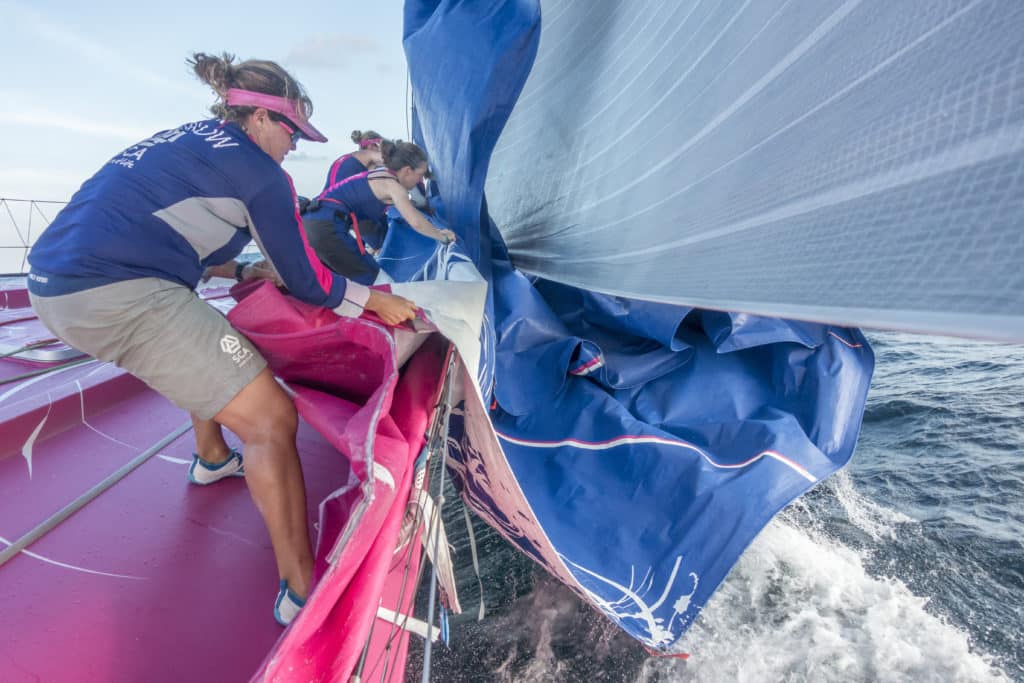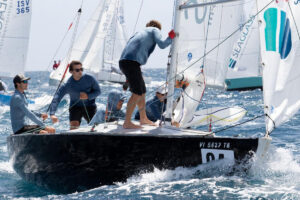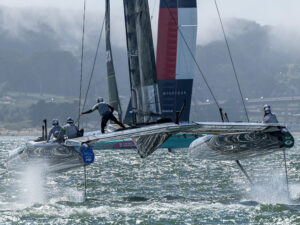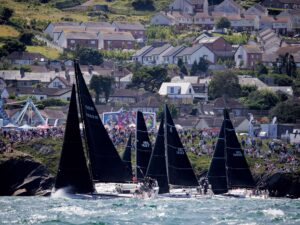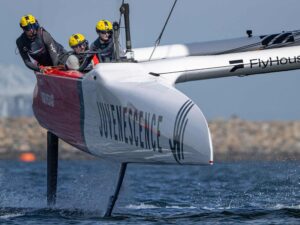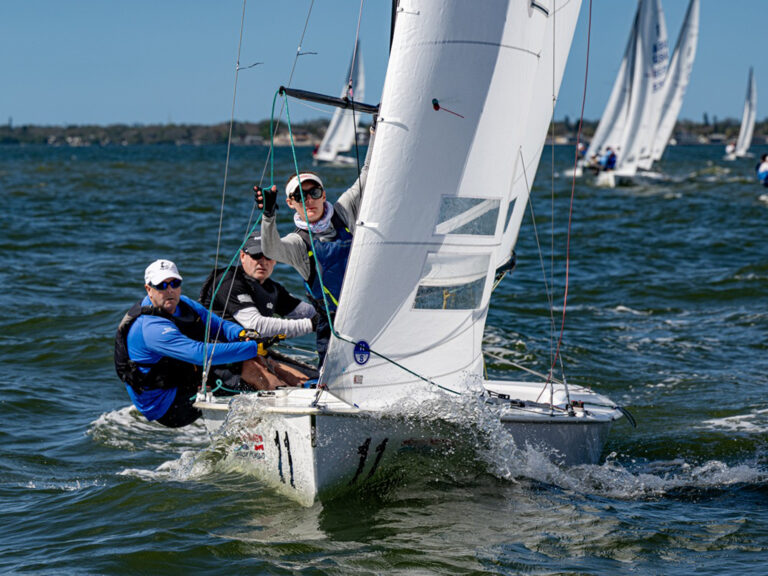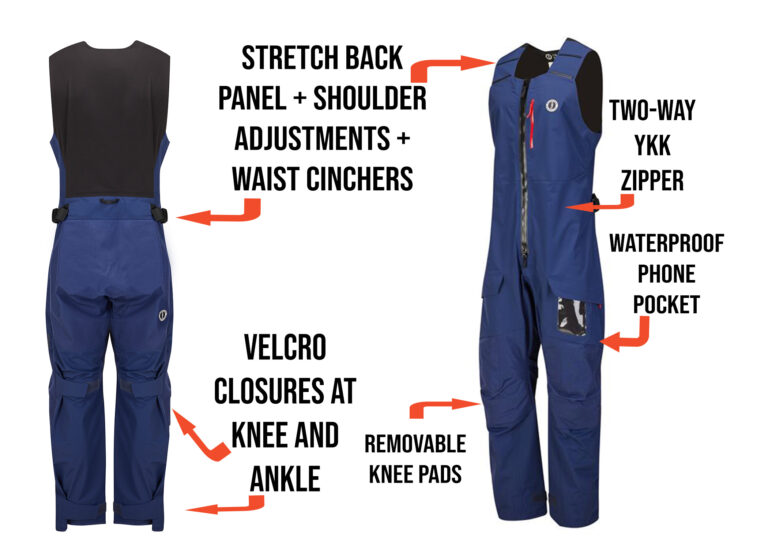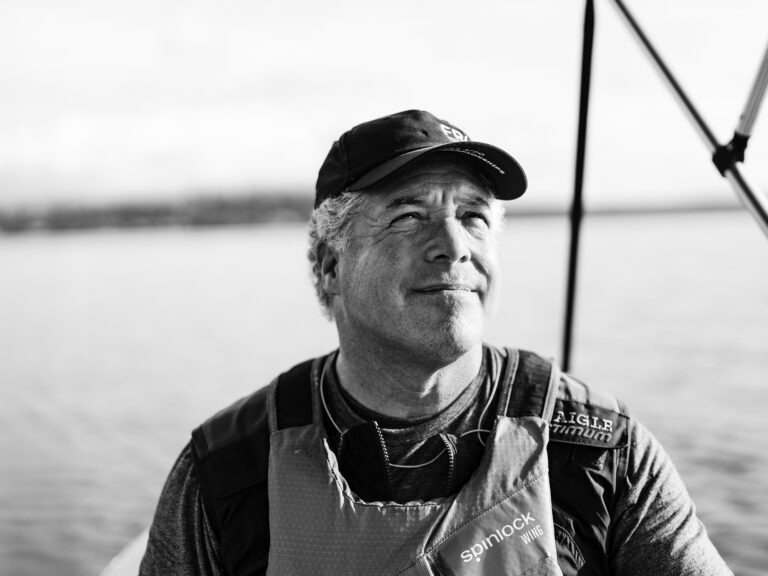Team Alvimedica
As the Volvo Ocean Race’s youngest team, sporting an average age of 30 at the start of the race, The American and Turkish-flagged entry made its presence known in the fleet by winning the opening In-Port Race in Alicante, Spain, in October.
The buoyant victory proved they were hungry to win, and had just enough collective experience to make a run at the overall prize. Their results were different on the ocean legs, however, as they struggled at times to maintain pace with the overall leaders. As the race has progressed, they’ve shown marked improvement, capped with a milestone achievement of rounding Cape Horn first on the extremely challenging Leg 5, from Auckland to Itajai, Brazil.
Led by American co- skippers Charlie Enright and Mark Towill, they’re now starting to appear on the podium with regularity, and have full intentions of winning Leg 6 to their home-port of Newport, R.I., tapping into the young spirit, grit, and ambition of their first campaign.
Team Vestas Wind
As the final team to enter the race, only weeks before the race start, the Dutch-sponsored team led by Australian skipper Chris Nicholson always had its work cut out for itself. Nicholson was banking on the one-design element of the race to at least provide him and his teammates a fighting chance.
With a fourth-place finish into Cape Town, Nicholson felt comfortable, initially. In the hunt they were, once again, as they were making good progress toward Abu Dhabi on Leg 2. In one devastating moment, however, the campaign unraveled when the boat ran hard aground on a remote Indian Ocean reef in the middle of the night.
Nicholson showed leadership skills in a way he never imagined, ensuring the safe evacuation and rescue of all crewmembers. Then came the removal, recovery, and rebuild of the boat, an incredible feat considering the remoteness of their grounding, and the logistics required to free it from the reef with minimal environmental impact.
The wrecked hull was shipped to Malaysia and then trucked to Italy where it has been undergoing a painstaking rebuild. With the full backing of sponsor Vestas, the world leader in wind energy, the team intends to rejoin the race in Lisbon to finish what they started.
Team Mapfre
As other teams were concluding their pre-race training in late 2014, this highly anticipated entry from Spain finally came to fruition behind international insurance giant, Mapfre, and its co-skippers, Olympic 49er gold medalists Iker Martinez and Xabi Fernández.
Whereas its rivals enjoyed a jumpstart on understanding the Volvo Ocean 65 and developing essential crew chemistry, the skiff-sailing Spaniards have proven they’re comfortable keeping the pedal down when given the opportunity to push the boat to its potential.
With a seventh-place finish in Cape Town after the opening leg, the team was facing the reality of being late to the game. As it is with Olympic sailing campaigns, however, the focus continued to be on improving. For Leg 4, from China to New Zealand, Martinez stepped of the boat due to Olympic sailing commitments, and with Fernández at the helm, Mapfre collected a critical leg win. With a second in Itajai, they were knocking on the door to the top-three.
The team is only getting stronger and there’s plenty of racing between Itajai and Gothenburg. The shorter legs ahead suit their intensity, so they are certainly the team Abu Dhabi Ocean Racing and Dongfeng must keep in check.
Abu Dhabi Ocean Racing
Abu Dhabi Ocean Racing’s determined and talented skipper, Ian Walker, is on his third attempt to win the Volvo Ocean Race. Surrounded on the boat by an equally experienced crew, the team has methodically put itself atop the overall leader board at the conclusion of Leg 5, as they have on the In-Port leader board as well.
There’s a saying in sailboat racing, “He who makes the fewest mistakes wins,” and to date, Walker’s team has been the most consistent, winning Leg 1 from Alicante to Cape Town and pocketing top-three finishes before another leg win into Itajai.
Before he got into the offshore racing game, Walker was an ace Olympic and one-design champion, meticulous and driven, so the one-design aspect of this edition suits him well. He’s a numbers guy, and spent a generous portion of his budget on understanding how to get the most speed from his Volvo 65. “It may be one-design, but it’s actually a fairly complicated one,” he said before the start. “We’re pretty confident with what we’ve got.”
Dongfeng Race Team
Behind the leadership of its French skipper, Charles Caudrelier, Dongfeng Race Team has established itself as Abu Dhabi Ocean Racing’s greatest threat.
Caudrelier won the previous edition as a crewmember, so he knows what’s required to win. Luck, however, has not gone entirely his way. Three times, the team has led the fleet into the final miles of a leg before beset by some cruel twist. In both Abu Dhabi and Auckland, it was a windless hole near the finish. On Leg 5, they were leading the fleet when their mast broke.
The key moment of the campaign thus far was leading the fleet into its homeport in Sanya, China, vaulting them ever closer to Abu Dhabi Ocean Racing. With a nail-biting third-place finish in Auckland, Dongfeng was then tied at the top, with half the points of the race accounted for.
Poised to battle for overall honors as they took on Southern Ocean, its navigator, Pascal Bidégorry, may have jinxed their chances. “The Southern Ocean, it breaks boats—we must be careful. Everyone must be careful because I want to pass Cape Horn.”
Unfortunately, Dongfeng passed the historic landmark with the top third of their mast dangling and broken, forcing them to retire from the leg, and beginning an entirely different race to get to Itajai in time to replace the mast and prepare for Leg 6 to Newport.
Team Brunel
Skipper Bouwe Bekking is happiest when all is going according to his plan—he’ll even crack a smile from time to time—but his reputation is of a stern, high-expectations captain of the ship.
As far as the Volvo Ocean Race goes, for Bekking, it’s six tries and no wins, and despite starting the race with strong odds in his favor, the Dutch-flagged Team Brunel has struggled in the later stages of the race as less experienced teams improve. Arriving first into Abu Dhabi at the conclusion of Leg 2, the team celebrated its status atop the leader board, but the celebration was short-lived, having failed to make the top-three in subsequent legs.
With the backing of Brunel, an international recruiting and management company, Bekking wasted little time recruiting an international squad from 600 applicants when forming his team, so he’s confident he has the right mix of talent, including the grizzled veteran Andrew Cape, of Australia, entering his sixth edition. The key, now, is unleash their potential in the closing stages.
Team SCA
Before the race started, pundits claimed the race was Team SCA’s to lose. The women held the historical upper hand: Time in the boat. The Swedish-flagged team was first to enter, first to sail the new Volvo Ocean 65, and
is funded through and through with tremendous support from its sponsor.
They race with eleven crewmembers to the eight of the men: the equalizer being strength in numbers. SCA is the world’s third-largest producer of paper products and toiletries—and has proudly put its money behind the storybook women’s entry. There’s talent aplenty onboard; the best female sailors in the world today—a dream team in pink and blue.
Taking a different approach to team hierarchy, there is no officially named “skipper.” Instead, Sam Davies, of England, is the “person in charge.” A solo sailor of outstanding reputation and skill, she’s also supported by solo circumnavigator Dee Cafari, of the United Kingdom. The strength of the team to date has been the in-port races, in which they’ve won two of five. Short-course racing suits them well, but on the open ocean, as the miles add up, they’ve been unable to maintain pace with the other teams. Their resilience and fighting spirit continue to make them the inspirational fan favorite.
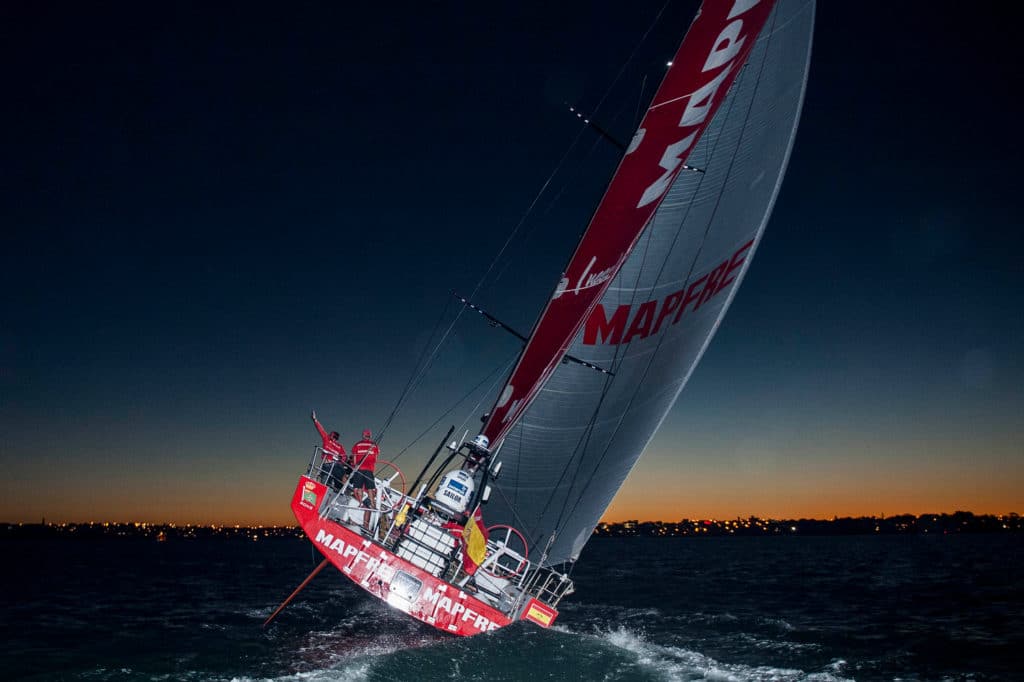
Volvo Ocean Race 2014-15 – Auckland Stopover
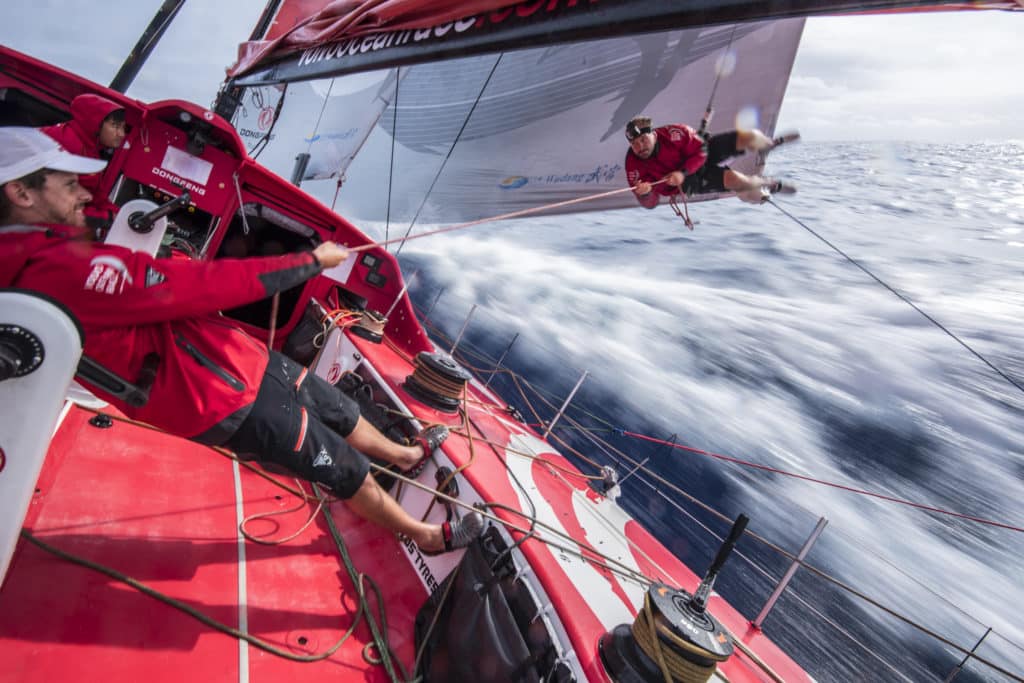
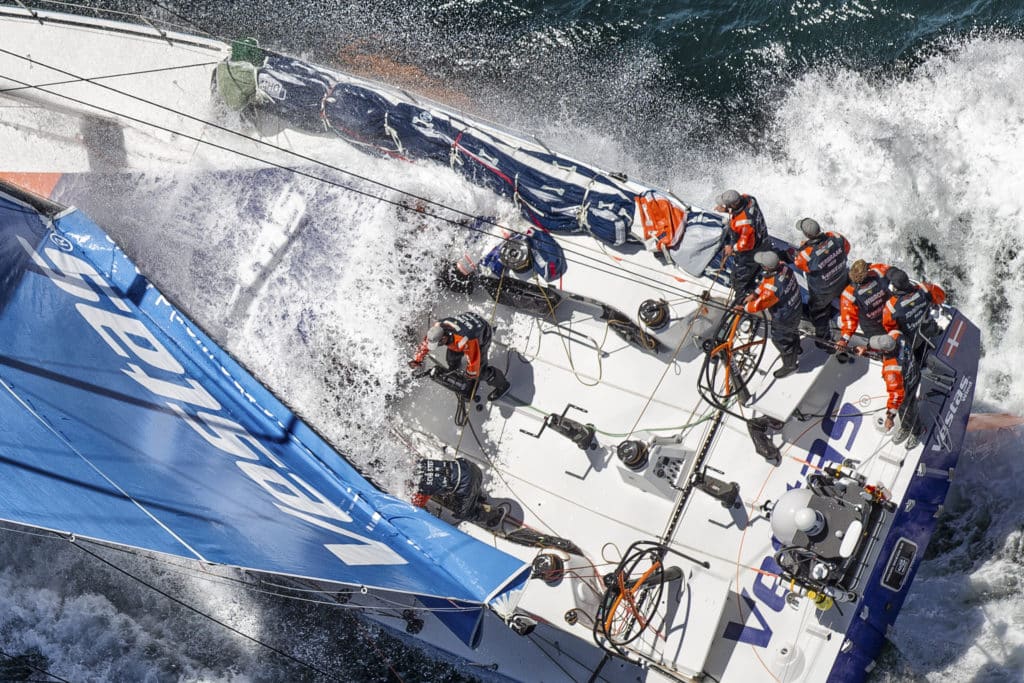
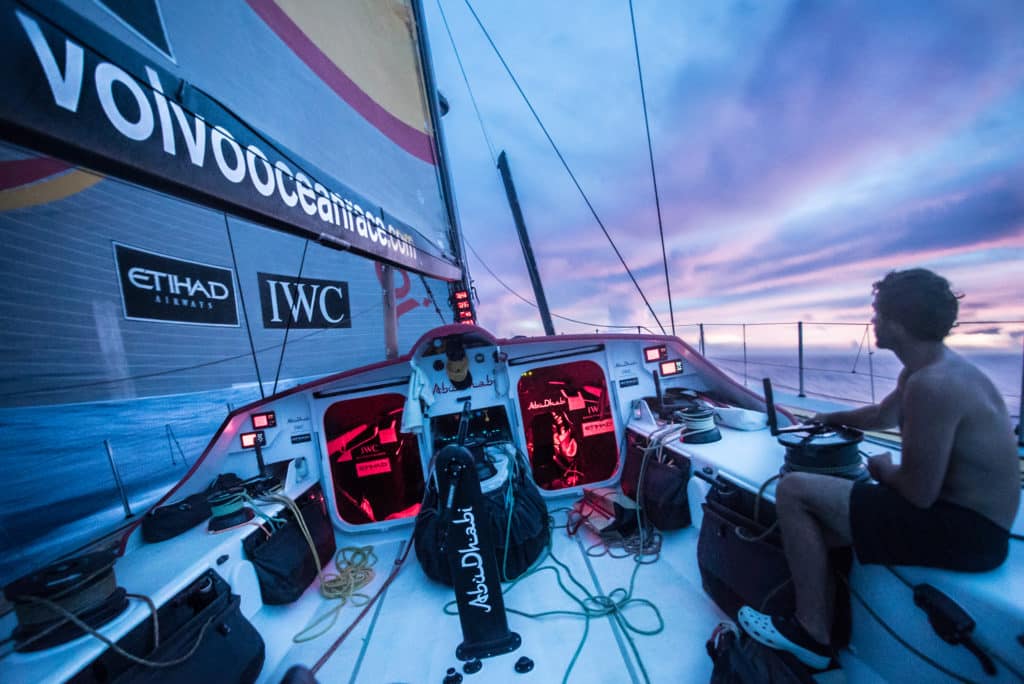
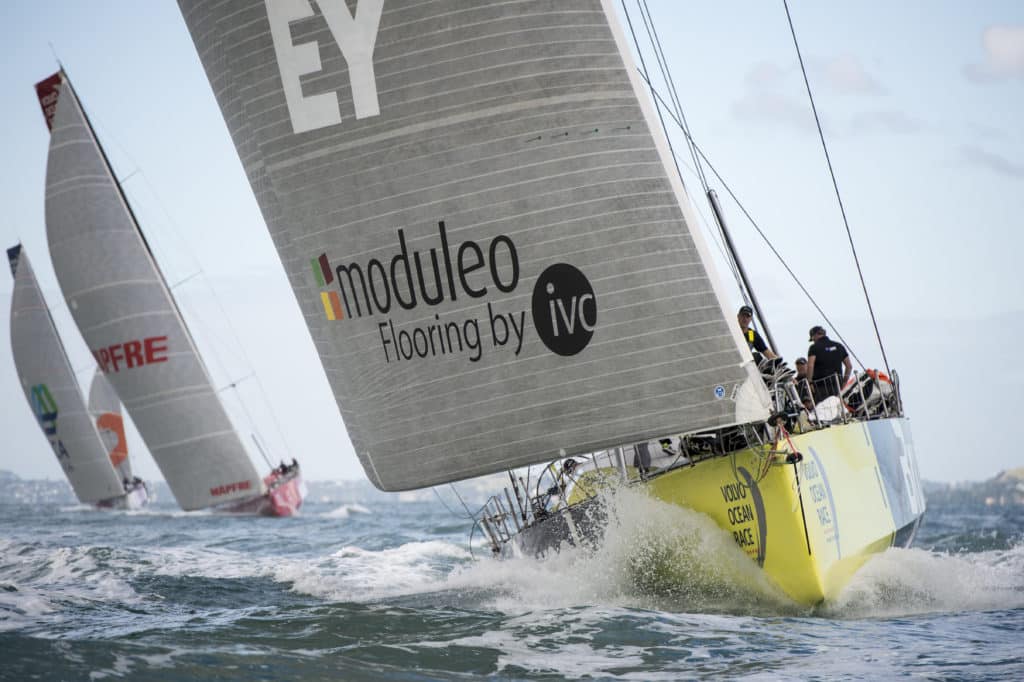
Volvo Ocean Race 2014-15 – Leg5 Start
